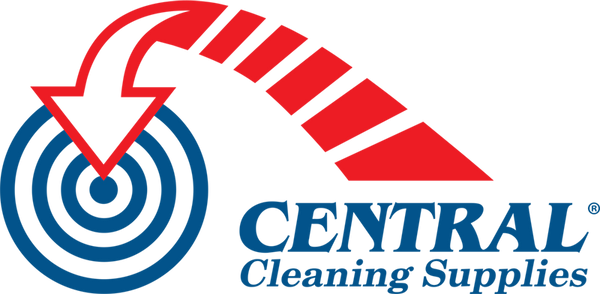Collection: Waste, Recycling & Rubbish
Find durable waste, recycling, and rubbish supplies at Central Cleaning Supplies. Choose from bins, containers, and accessories designed for general waste, recycling, organic waste, hazardous waste, and more. Perfect for businesses and industries seeking sustainable, compliant waste management solutions with fast delivery across Australia.
Shop by Category
-

Bin Liners
Discover Central Cleaning Supplies’ wide range of bin liners designed to fit...
-


Sabco EnviroPlastic Organics Recycling Station Green
Sabco EnviroPlastic Organics Recycling Station Green
Regular price $89.00 AUDRegular priceUnit price / per -


Sabco Swing Lid Light Blue
Sabco Swing Lid Light Blue
Regular price $54.40 AUDRegular priceUnit price / per -


Sabco EnviroPlastic Bottles Recycling Station Yellow
Sabco EnviroPlastic Bottles Recycling Station Yellow
Regular price $89.00 AUDRegular priceUnit price / per -


Sabco EnviroPlastic Landfill Station Red
Sabco EnviroPlastic Landfill Station Red
Regular price $89.00 AUDRegular priceUnit price / per -


Sabco EnviroPlastic Paper Recycling Station Blue
Sabco EnviroPlastic Paper Recycling Station Blue
Regular price $89.00 AUDRegular priceUnit price / per -


Sabco EnviroPlastic Recycling Station Black
Sabco EnviroPlastic Recycling Station Black
Regular price $68.60 AUDRegular priceUnit price / per -


Sabco Recycling Lid & Label Yellow
Sabco Recycling Lid & Label Yellow
Regular price $34.55 AUDRegular priceUnit price / per -


Sabco Recycling Lid & Label Red
Sabco Recycling Lid & Label Red
Regular price $34.55 AUDRegular priceUnit price / per -


Sabco Recycling Lid & Label Green
Sabco Recycling Lid & Label Green
Regular price $34.55 AUDRegular priceUnit price / per -


Sabco Recycling Lid & Label Blue
Sabco Recycling Lid & Label Blue
Regular price $34.55 AUDRegular priceUnit price / per -


Sabco Geo Bin Lid with Handles
Sabco Geo Bin Lid with Handles
Regular price $45.55 AUDRegular priceUnit price / per -


Sabco Geo Bin Lid for Papers
Sabco Geo Bin Lid for Papers
Regular price $45.55 AUDRegular priceUnit price / per -


Sabco Geo Bin Lid for Cans
Sabco Geo Bin Lid for Cans
Regular price $45.55 AUDRegular priceUnit price / per -


Sabco Geo Metallic 80L Large Bin
Sabco Geo Metallic 80L Large Bin
Regular price $188.40 AUDRegular priceUnit price / per -


Sabco Geo Metallic 60L Medium Bin
Sabco Geo Metallic 60L Medium Bin
Regular price $163.40 AUDRegular priceUnit price / per -


Sabco Galvanised Civic Bin 55L
Sabco Galvanised Civic Bin 55L
Regular price $117.74 AUDRegular priceUnit price / per -


Sabco Waste Tidy Bin
Sabco Waste Tidy Bin
Regular price $8.56 AUDRegular priceUnit price / per -


Method Bin 20L Landfill Red
Method Bin 20L Landfill Red
Regular price $171.40 AUDRegular priceUnit price / per -


Method Bin 20L Commingle Yellow
Method Bin 20L Commingle Yellow
Regular price $171.40 AUDRegular priceUnit price / per -


Rubbermaid Tilt Truck 800L
Rubbermaid Tilt Truck 800L
Regular price $3,351.65 AUDRegular priceUnit price / per
Waste, Recycling & Rubbish frequently asked questions
What is the environmental impact of waste and recycling?
The environmental impact of waste and recycling is significant. Most municipal solid waste ends up in landfills, polluting the air and releasing greenhouse gases. Recycling saves resources like minerals, water, and timber, and reduces energy consumption. However, less than a quarter of municipal solid waste is recycled, highlighting the need for improved recycling rates and waste management practices to maximise environmental benefits.
What are the differences between landfill, incineration, and recycling?
Landfilling, burning, and recycling are three methods to dispose of trash, each with its own environmental impact. Landfills break down trash, releasing methane, which can pollute soil and groundwater. Incineration burns waste at high temperatures, reducing its volume by up to 95% and producing energy. However, it can release air pollutants like heavy metals and dioxins. Recycling converts waste into new products, saving resources like water and wood, and reducing air pollution by up to 95% for materials like aluminum. Recycling is the most environmentally friendly method, as it reduces pollution and resource use. Landfilling and incinerating, on the other hand, are necessary but come with trade-offs in emissions, cost, and space required.
How can I reduce waste at work?
To reduce waste at work, conduct a waste audit to identify waste sources and implement solutions. Encourage digitisation by using minimal paper and printing on both sides. Reuse non-recyclable items like coffee mugs, dishware, and lunch boxes. Consult suppliers on packaging reduction and choose products made from recyclable materials. Place recycling bins in easily accessible locations and label them clearly. Teach employees about eco-friendly practices and establish a "green" team to lead waste reduction efforts. Implement composting programs for food scraps and encourage repurposing office supplies. These strategies create a lasting workplace culture while reducing waste management costs and environmental impact.
How should I dispose of hazardous household waste?
To protect health and the environment, dispose of hazardous household waste properly. Avoid pouring paint, solvents, pesticides, batteries, or motor oil down toilets, drains, or trash bins, as it can pollute water and soil. Keep waste in its original containers and store it in a safe, cool, and dry place. Check with local waste management or environmental agencies for safe disposal methods. Some businesses may recycle certain items, even without a permanent recycling center. Following these rules ensures safe handling of hazardous waste without posing health or environmental risks.


























